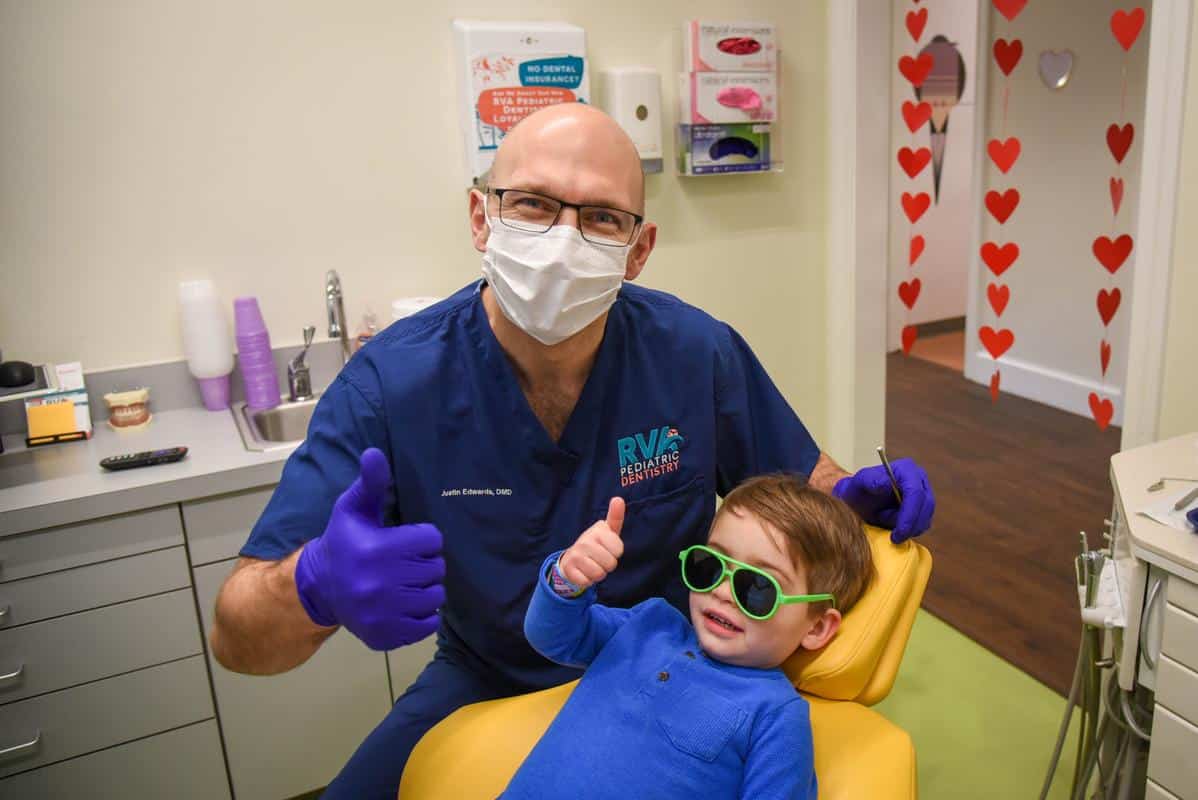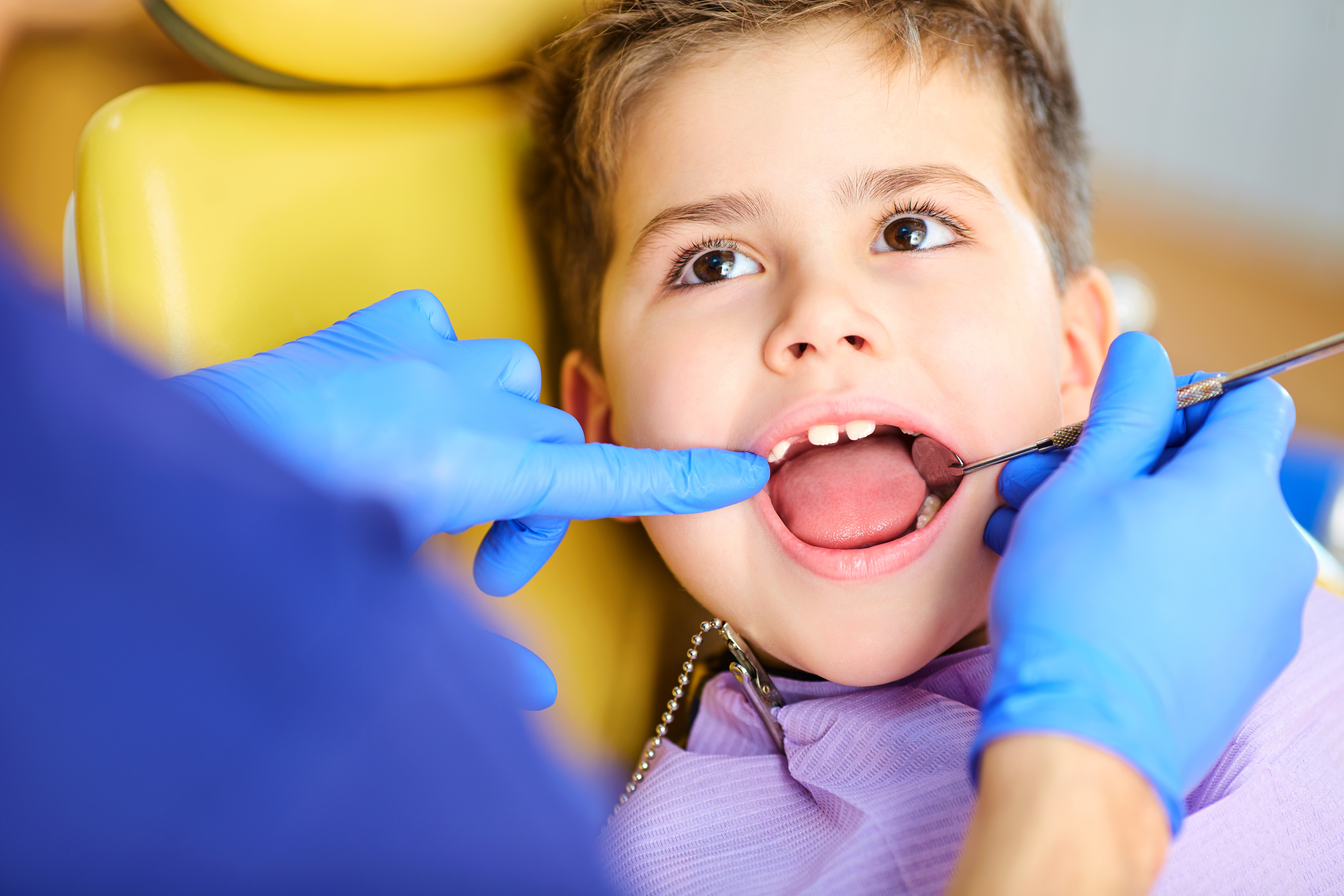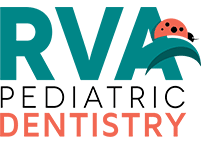PEDIATRIC DENTAL CARE
Instilling healthy dental habits early for a lifetime of smiles

We know you always want the best for your child and that starts with excellent pediatric dental care, beginning in infancy, to help build strong, healthy teeth. At RVA Pediatric Dentistry, we focus on keeping primary teeth healthy and teaching children and parents ways to prevent decay and other dental diseases. Regular, preventative pediatric dental care (twice-yearly visits) and proper home care can help minimize and possibly eliminate the need for invasive treatment such as fillings. Our goal is to team with you and your child to proactively prevent cavities.
The American Academy of Pediatric Dentistry recommends children visit the dentist by their first birthday. It is important that your child receive proper dental care and the benefits of excellent oral hygiene habits right from the beginning.
BRUSHING AND FLOSSING
Some kids can be very independent and prefer to brush their teeth by themselves. However, it may take some time for toddlers and small children to develop the dexterity needed to thoroughly clean their teeth and gums. We encourage parents to allow their child to brush first in order to learn and then come help your child finish brushing to make sure they’re getting all their teeth and gums clean.
TIPS:
For small children, age 3 and up, the American Dental Association (ADA) and the American Academy of Pediatrics (AAP) recommend using a small pea-sized amount of fluoride toothpaste on a soft-bristled toothbrush.
Brush your child’s teeth twice a day, in the morning and before bed, making sure to concentrate on the back molars as this is a prime location for cavities to begin. It is important to replace toothbrushes every 3 months, or more often if necessary, to get the best results when brushing.
Make brushing your child’s teeth fun! Here are some tips to help incorporate into your brushing routine:
- Integrative apps and games about brushing
- Play music while your child brushes
- Reward good brushing behavior
- Let your child pick out his favorite toothbrush and toothpaste
- Watch videos about brushing teeth
- Read stories about brushing and flossing
- Brush together — your child can learn from your example
We recognize that flossing can be challenging even for adults. Flossing is an integral step of pediatric dental care. It is important to teach your child the benefits of flossing early so that it can become a lifelong habit and part of a good oral hygiene routine.
FUN FACT: If you forget to floss, you miss cleaning 40% of your tooth surfaces.
DENTAL SEALANTS
A dental sealant is a protective coating that is brushed on to the chewing surfaces of the back teeth. Sealants help protect molars from tooth decay. They are an excellent defense against childhood cavities and have even been known to last well into adulthood for some patients. At RVA Pediatric Dentistry, we offer sealants to help protect primary molars, as well as permanent molars, from decay.


THUMBSUCKING & PACIFIERS
Babies are born with the natural reflex to suck. Some babies even suck their thumb in the womb. Sucking is a natural soother for babies and can help them fall asleep.
Sucking a pacifier or a thumb only becomes a problem when the habit carries on past the age of 4. If continued, the pacifier or thumb can affect the growth and alignment of the bite by pulling the front teeth forward, pushing the lower teeth back and narrowing the roof of the mouth. This can lead to an open bite or overbite.
Pacifier habits are usually easier to break than thumbsucking; however, with positive reinforcement and encouragement, your child can stop sucking. If you notice any changes in your child’s teeth or are concerned about their sucking habit, we are happy to answer any of your questions at (804) 220-6188.

Monday – Thursday
8:00 AM – 4:00 PM
Friday
8:00 AM – 1:00 PM
By Appointment Only

 OUR CHILD’S SMILE
OUR CHILD’S SMILE
